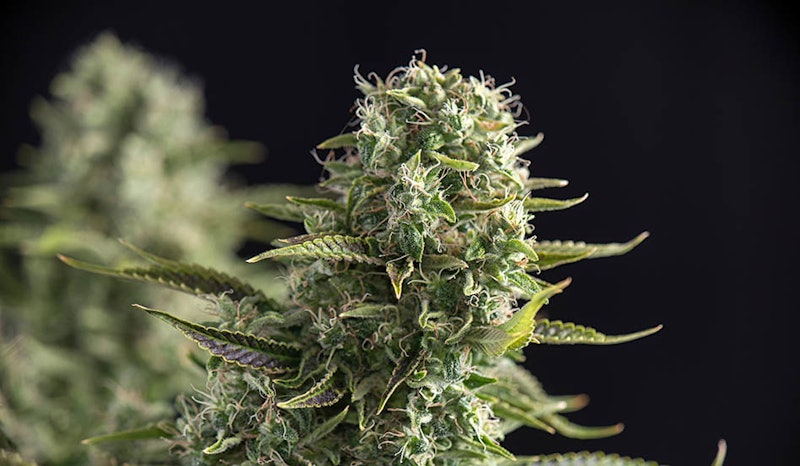Texas lawmakers continue to be at odds with their constituency over cannabis policy, as the majority of the state’s citizens support legalizing not only medical cannabis but decriminalizing and legalizing adult-use cannabis, too.
Specifically, 79% of Texans back legislation that would establish a full-fledged medical cannabis program for qualified patients to access the plant for a wide range of medical purposes with a doctor’s prescription, according to a report released Feb. 4 by the University of Houston’s (UH) Hobby School of Public Affairs.
Furthermore, 69% of Texans endorse legislation to decriminalize cannabis for those 21 years and older, while 62% support legalizing a commercial marketplace for adult-use sales, according to the report: “Texas Legislative Issues 2025: Gambling and Marijuana Legalization.”
The majority of survey respondents across all political affiliations, genders, races, generations, education levels and income levels supported these three cannabis-related policy positions.
Policy positions for these three cannabis-related issues were supported by the majority across all political affiliations, genders, races, generations, education levels and income levels that were included in the university survey.
For medical cannabis legalization, in particular, every socio-demographic subgroup favored reform, with 70% supermajorities or higher.
“Overall, there is a strong consensus among Texans, with only two noteworthy socio-demographic subgroup differences, in support of legalizing medical marijuana in Texas,” the report’s authors wrote. “The two sub-group differences are tied to religion and partisanship. Nonreligious Texans (88%) are significantly more likely than born-again Protestants (70%) to support the passage of medical marijuana legislation, and 86% of Democrats, compared to 75% of Republicans, favor this policy.”
Univ of houston Report 2025 02 03 154405
University of Houston Hobby School of Public Affairs, January 2025, “Texas Legislative Issues 2025: Gambling and Marijuana Legalization”
The report comes at a time when Texas remains one of the least permissive states in the nation when it comes to its cannabis laws. Under the state’s Compassionate Use Program, doctors are limited to prescribing low-THC cannabis capped at 1%. While the program was initially limited to those with intractable epilepsy in 2015, lawmakers expanded the program in 2019 and 2021 to include nine qualifying conditions.
Still, the 1% THC cap aligns more closely with the definition of hemp, as Texas remains one of 11 states in the country that continues to severely limit access to medical cannabis in a normalized sense. Georgia and Iowa also have highly restrictive medical cannabis programs, while eight other states are absent of programs.
In turn, products with intoxicating hemp-derived cannabinoids have exploded into a multibillion-dollar market in Texas, sparking elected officials’ attempt to backpedal and reform by outlawing THC altogether.
Not to mention, more than 60 of New Mexico’s adult-use cannabis dispensaries have set up shop within 20 miles of the Texas border to play on the opportunity of Texas’ less-permissive cannabis laws, according to the Pew Research Center.
But this border-town action can be risky: Texans caught with any amount of cannabis face criminalization.
Under current Texas law, possessing up to 2 ounces of cannabis is a misdemeanor punishable by up to 180 days in prison with a $2,000 fine; possessing 2 to 4 ounces of cannabis is a misdemeanor punishable by up to one year in jail with a $4,000 fine; and possessing amounts greater than 4 ounces is considered a felony that carries a mandatory minimum jail sentence.
Texans don’t agree with these penalties, according to the UH report.
“While there are no noteworthy gender, ethnic/racial or generational differences in support of the decriminalization of the possession of marijuana in Texas, there are salient sub-group differences revolving around education, income, religion, and partisanship,” the authors wrote.
Texans without college or advanced degrees, with lower incomes or who are nonreligious are more likely to favor decriminalization, according to the report.
Nevertheless, every single subgroup included in the survey supported decriminalizing cannabis.
Meanwhile, born-again Protestants represented the only socio-demographic subgroup that did not favor adult-use cannabis legalization, with 44% of survey respondents backing that policy position. In comparison, 59% of Roman Catholics surveyed said they supported adult-use legalization, while 81% of nonreligious survey participants said they supported adult-use legalization.
“After having provided their standalone evaluations of these three policy proposals, Texans were asked which one of the three policies was closest to their own personal preference, with a fourth option of maintaining the current Texas policies and regulations governing marijuana use in the Lone Star State,” according to the report.
When forced to pick one of the four policy options:
32% of Texans opted for the legalization of adult-use cannabis;
29% for the legalization of medical cannabis;
17% for the decriminalization of the possession of cannabis; and
22% preferring the maintenance of the status quo in Texas, under which the sale and use of cannabis is illegal.
Texas is one of four states where legislators only meet in odd-numbered years. This means there are limited opportunities for lawmakers to reform cannabis laws, with 140 calendar days for legislative activity every two years.
Texas is also one of 24 states that do not provide for statewide citizen-initiated ballot measures: If the state’s citizens want their cannabis laws changed, they must count on their elected officials to get the job done.
H/T: www.cannabisbusinesstimes.com



